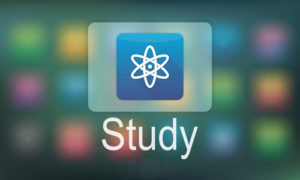 (This article was first published in 2015, and last updated December 2025).
(This article was first published in 2015, and last updated December 2025).
A critical part of the International Coaching Federation (ICF) credentialing process is to submit coaching session recordings when you apply for your MCC, PCC or ACC credential. This is called a Performance Evaluation (PE) by the ICF. An applicant submits one PE for ACC, and two PEs for PCC and MCC applications.
Here are my top ten tips for putting yourself in the best position to have your coaching session recordings pass. And some bonus tips too!
1. Carefully choose the client/s to coach and record
 For example, what are the pros and cons of coaching and recording some current clients? How about previous clients you loved working with, and they with you? Or reaching out to some advocates – people who know you well, and may be able to refer some potential clients. Or perhaps a fellow coach? Let’s consider each of the options for who to choose to record for your mentoring and credentialing process:
For example, what are the pros and cons of coaching and recording some current clients? How about previous clients you loved working with, and they with you? Or reaching out to some advocates – people who know you well, and may be able to refer some potential clients. Or perhaps a fellow coach? Let’s consider each of the options for who to choose to record for your mentoring and credentialing process:
a) Coaching and recording current clients. Perhaps you have some favorite current coaching clients who are willing, and able, to be recorded. Explain what you might be doing differently as you integrate coaching skills and competencies at the next level. Agree to record for three (or more) coaching sessions. The downside is that your current clients may expect you to coach them a certain way, and now you are adapting your approach and they may not like that. Other clients will be delighted to experience your coaching, and appreciate your desire to continue to develop yourself to be an even better coach.

b) Coaching past favorite clients. Think of 2 or 3 past clients you loved coaching, and who loved being coached by you. Let them know you’re engaging in continually upgrading your coaching skills, and inquire if they have something meaningful to be coached on, and are willing to be recorded for 3 (or more) coaching sessions, for your mentoring and credentialing process. If not them, perhaps then who do they know that might be interested.
I let my clients know I value Excellence and Evolution, so I’m continually developing my coaching mindset and coaching skills, no matter how experienced I am as a coach. This is in service of me being the very best coach I can be. I’m also role modeling for my clients, a learning mindset, which aligns with ICF Core Competency #2: Embodies a Coaching Mindset.
Bonus Tip! You can let any client you are recording know you will record using audio-visual, and that you will only be ![]() submitting the audio version of the recording. This can put some clients at ease about their privacy. If using Zoom, the recordings are automatically created as separate files – one is audio/visual (to use for your learning – refer to Tip #7). The other is an audio only version.
submitting the audio version of the recording. This can put some clients at ease about their privacy. If using Zoom, the recordings are automatically created as separate files – one is audio/visual (to use for your learning – refer to Tip #7). The other is an audio only version.
c) Ask some advocates for possible clients. Who in your broader network are people who love you and know you well, and might know of someone interested in 3 coaching sessions at full, low or no fee, in return for recording sessions? Let your advocate know you are interviewing for 2-3 potential clients to ensure they have meaningful objectives and “gaps” and are seeking coaching (not mentoring, advising, therapy). A meaningful gap is something they want to gain clarity about so they can move forward, from where they are now, to where they want to be. This could be something they’d like to have happen, or something they’d like to no longer have happen. Offer 3 sessions to begin with, so you are only committed to 3 sessions. If you both then decide it’s worthwhile to continue, you can then offer more sessions.
 Bonus Tip! If you can, listen for when interviewing if the client is more reflective about themselves versus verbal processors who speak most of the time. It’s also normal during the first few coaching sessions for a client to speak more; perhaps they’ve not spoken aloud or had an opportunity to be heard. We offer this listening space. After the first few sessions, a client likely is feeling heard and doesn’t need to explain everything to the coach. If not, the coach has an opportunity to converse with the client on how to use the coach ‘well,’ versus just reporting on everything that is occurring for them.
Bonus Tip! If you can, listen for when interviewing if the client is more reflective about themselves versus verbal processors who speak most of the time. It’s also normal during the first few coaching sessions for a client to speak more; perhaps they’ve not spoken aloud or had an opportunity to be heard. We offer this listening space. After the first few sessions, a client likely is feeling heard and doesn’t need to explain everything to the coach. If not, the coach has an opportunity to converse with the client on how to use the coach ‘well,’ versus just reporting on everything that is occurring for them.
d) Coach a fellow coach? Even though ICF allows you to coach a fellow coach as your client to submit for your Performance Evaluation process, carefully consider if you submit such a session. There are clear guidelines which include the coach (as client) has contacted you for coaching (not training, consulting, advising, therapy). They are an ongoing coaching client (not a once off session coaching client). The coaching session cannot have occurred in a coach training environment either, wherever there is an ‘audience.’
The reason for considering not submitting a recording of you coaching a coach is because coaches are trained in the skills you are seeking to demonstrate, and will often be overly helpful, or overly coach themselves. This means your skill level demonstration has to be higher, or may not allow you to showcase the full range of your coaching skills. This may result in an overall lower score since the Assessors are not able to clearly determine your coaching abilities.
*Having written that, there are coaches who have coaches as their primary target audience and recordings of such do pass the ICF credential process. Remember this is a coaching exam where “You” are the one needing to showcase your coaching skills. If you do consider a coach as client, agree to coach them on life or work topics, that eliminate or minimize their mentioning they are a coach.
2. Have a Coaching Plan
 I wrote about the importance of having a Coaching Plan with your client. Whether working with a current, past or new client for fee or no fee, ensure you establish what their outcomes are for coaching with you, even if only for 3 sessions. This allows you to ask questions related to their bigger goals, such as how today’s topic relates to their overall objectives for coaching. The coach is able to demonstrate more of the core competencies, and take a more holistic approach in the coaching.
I wrote about the importance of having a Coaching Plan with your client. Whether working with a current, past or new client for fee or no fee, ensure you establish what their outcomes are for coaching with you, even if only for 3 sessions. This allows you to ask questions related to their bigger goals, such as how today’s topic relates to their overall objectives for coaching. The coach is able to demonstrate more of the core competencies, and take a more holistic approach in the coaching.
Having an intake questionnaire to establish client goals and outcomes is a form of a coaching plan – it doesn’t need to be a detailed plan, unless that is your client approach to planning.
3. Submit a second, third or further session rather than a first session with a client
 When you commence a coaching engagement, you are learning about each other and the coaching process. Even a past client you are coaching again, will have an element of catching up or learning where the client is now. Especially to demonstrate MCC skill level, you need to have deeper rapport with your client and a first session is where you are only beginning to build rapport.
When you commence a coaching engagement, you are learning about each other and the coaching process. Even a past client you are coaching again, will have an element of catching up or learning where the client is now. Especially to demonstrate MCC skill level, you need to have deeper rapport with your client and a first session is where you are only beginning to build rapport.
Submitting a first session may not allow for some competencies to be well demonstrated, including #5. Maintains (Coaching) Presence and #4. Cultivates Trust & Safety. In the Individual Mentoring portion of our Mentor Coaching Program, we do not recommend reviewing a first coaching session together, unless you want to use it as a learning opportunity. There are always exceptions, and a first session may meet ICF competencies, such as for ACC skill level. However better not to count on a once-off or first session for your ICF credential application and instead record a series of sessions to choose from.
 Bonus Tip! Here’s an easy way to demonstrate an aspect of #1. Demonstrates Ethical Practice. You can begin (or finish) coaching sessions with a statement like, “Thank you for allowing me to record for credentialing purposes. If at the end of the session you don’t want me to keep the recording, please let me know and I’ll delete it.” This lets the Assessors know the client is aware of being recorded and you have explicit permission to record (demonstrating Ethics). To say this means you have had a conversation with the client, otherwise they wouldn’t understand what you just said. However, you are not required to say this at the beginning (or end) of a session, as you have to “attest” in your credential application that you have explicit permission from the client to record for your exam purposes.
Bonus Tip! Here’s an easy way to demonstrate an aspect of #1. Demonstrates Ethical Practice. You can begin (or finish) coaching sessions with a statement like, “Thank you for allowing me to record for credentialing purposes. If at the end of the session you don’t want me to keep the recording, please let me know and I’ll delete it.” This lets the Assessors know the client is aware of being recorded and you have explicit permission to record (demonstrating Ethics). To say this means you have had a conversation with the client, otherwise they wouldn’t understand what you just said. However, you are not required to say this at the beginning (or end) of a session, as you have to “attest” in your credential application that you have explicit permission from the client to record for your exam purposes.
4. Allow time for a flexible ending to each coaching session
The ICF allows you to submit 20-60 minute coaching sessions (and not a minute more). Generally less than 30 minutes is not enough time to demonstrate all the competencies for the ICF Performance Evaluation process. It can be challenging for some coaches to stay fully in coaching mindset for 50 or 60 minutes, and may instead move in to mentoring, teaching or advising. However, you can go to 59 minutes – be conscious to stay fully in coaching mindset.
You can partner with your client on time of session, and to allow flexibility for end time. For example, you could let your client know you will aim for 40-45 minute coaching sessions, or 45 – 55 minute sessions. This means you can close the coaching session when it feels like the coaching is complete, rather than a hard stop (of 30 or 45 minutes) as the client might have some awareness emerging later in the session. You also want to allow time to demonstrate #8. Facilitates Client Growth, such as checking on client progress made in the session, client learning, client actions, support or resources, commitment and accountability. As well as acknowledge the client for their way of participating in their coaching session, their insights, their learning, and their progress made toward their desired outcome/s. Also allow time to partner with the client to close the session.
You can see why a rigid time stop can be detrimental to the client integration, and also to the coach demonstrating more coaching competencies and coaching behaviors.
5. Master your Presence, and establishing the coaching session agreement
Two crucial competencies to master are #5.  Maintains (Coaching) Presence, and ability to #3. Establish the Coaching Session Agreement. In my model of the ICF core competencies, The Upgraded Target Approach, the core competency of Maintains Presence is at the center of the target. Establishing the coaching agreement is a “structural” competency, because you need to know how to structure a coaching session to ensure you attend to the agenda and outcome/s the client wants.
Maintains (Coaching) Presence, and ability to #3. Establish the Coaching Session Agreement. In my model of the ICF core competencies, The Upgraded Target Approach, the core competency of Maintains Presence is at the center of the target. Establishing the coaching agreement is a “structural” competency, because you need to know how to structure a coaching session to ensure you attend to the agenda and outcome/s the client wants.
ICF is evaluating coaching skills, not how well a coach blends coaching with mentoring, teaching or consulting skills. That doesn’t mean these other skills aren’t valued or valuable; it’s just not what the ICF is measuring for their exam process.
Your presence is what determines what you believe your role is as a coach, how you listen to your client, what you believe is important to ask, or what you never ask about. As you progress from ACC to PCC to MCC, you need to be more attentive to the “Who” of the client, not just the situation or “What” that they bring. The “Who” is their beliefs, values, ways of thinking, emotions, sensations, processing style, etc. Which informs what the client does or doesn’t do.
As coaches, we need to continuously engage with our own “Who” and understand how our Presence determines our level of coaching effectiveness. Core Competency called, #2. Embodies a Coaching Mindset is for the coach to develop and maintain a coaching mindset.
Sometimes coach mindset is more of a teacher, trainer, mentor or consultant, which may have the coach determine the best outcome for the client for the coaching session. Even subtly, sometimes the coach leads the client to what the coach wants to focus on. Perhaps the coach has only listened long enough to hear what the coach thinks is the desired outcome. Or doesn’t have a clear understanding of coaching mindset versus consulting, mentoring or teaching mindset.
I’ve paired these two competencies (Presence and Coaching Agreement), because the way the coach engages with the client from the beginning, most often determines how the session unfolds, and who’s agenda is being fulfilled.
6. Seek out a Qualified Mentor Coach
 Invest in a mentor coach, someone who studies and understands the ICF Core Competencies at a deep level. Perhaps someone outside your own coaching training, so you broaden your knowledge and abilities as a Professional Coach. You can engage in group and/or individual mentoring settings. My experience of mentoring over 700 coaches (and counting) is that a combination of group and individual mentoring is more effective for most coaches, than individual mentoring sessions alone. The collective experiential learning as well as competency distinctions offered within the group environment translate into faster integration and upgrading of coaching skills for most coaches.
Invest in a mentor coach, someone who studies and understands the ICF Core Competencies at a deep level. Perhaps someone outside your own coaching training, so you broaden your knowledge and abilities as a Professional Coach. You can engage in group and/or individual mentoring settings. My experience of mentoring over 700 coaches (and counting) is that a combination of group and individual mentoring is more effective for most coaches, than individual mentoring sessions alone. The collective experiential learning as well as competency distinctions offered within the group environment translate into faster integration and upgrading of coaching skills for most coaches.
Coaches applying for their MCC credential may not have had their coaching reviewed with a qualified mentor coach in quite awhile, maybe since they completed their coach training years earlier. This contributes to a coach failing their MCC exam the first time; they haven’t evaluated where their coaching skills are now, and compared to the standards for MCC skill level. They may have thousands of hours of coaching, yet what is the quality of their coaching? More coaching hours doesn’t always mean higher quality coaching, unless you are studying and evolving your coaching skills.
A qualified mentor coach will also be able to articulate and demonstrate distinctions between ACC and PCC and MCC skill level. You can learn more by studying the ICF Core Competencies, the ICF Code of Ethics, ACC Minimum Skills Requirements, PCC Minimum Skills Requirements, and MCC Minimum Skills Requirements.
7. Record, Record, Record!
Record 3 clients for 3 sessions each, which will give you more to learn and choose from. For each client,  have 2 weeks between each coaching session, no longer than 3 weeks. Longer periods in between sessions often has clients use coaching as a reporting opportunity, rather than building on conversations which occur less time apart.
have 2 weeks between each coaching session, no longer than 3 weeks. Longer periods in between sessions often has clients use coaching as a reporting opportunity, rather than building on conversations which occur less time apart.
When I’m assessing coaching recordings for the ICF, it can often seem the coach has only recorded this one (or two) sessions as there is a lack of flow and rapport. You most often need to record many sessions, and choose the best one or two for your submission, as not every coaching session will allow you to showcase your full range of coaching skills for an exam process.
You will likely be nervous or self-conscious at being recorded, which affects your Presence and coaching skills in general. Record several/many sessions, then listen to your recordings, and/or review them with a qualified mentor coach against the ICF Core Competencies, as well as the specific behaviors for ACC, PCC or MCC skill level.
Once you’ve recorded, be brave and watch/listen to your own coaching session :-). You will learn a lot by watching AND listening to your own coaching, including how you sound in terms of tone, pitch and volume changes over the course of a session. Also, observe your facial and body movements on video; what do you notice about your matching or mismatching of client way of using their body/face? You’ll hear ‘small words and sounds’ you make such as, Hmmm, Ahhh, Okay, Right. Got it. Too many of these, too often, can interfere with the space and silence for the client, and be an interruption. Too much mismatching of facial and body movements by the coach, can be distracting and take away from the ‘space’ for the client.
In our mentoring programs, we require participants to complete a core competency worksheet on their coaching sessions so they learn to listen for and identify their coaching skills, and any habits they might not be aware of in their speech patterns or body language.
 Bonus Tip! Ensure you are coaching in a quiet environment, not a cafe or open air that has music playing, a lot of people talking (or coffee machines, etc). Or people moving around in the background. Or dogs constantly barking. Or wind whipping across the microphone if you are outdoors. Really pay attention to background noises. All of these can be picked up when recording and are louder than you think. This can interfere with the ability to clearly hear you coaching, and might not be suitable recordings to submit.
Bonus Tip! Ensure you are coaching in a quiet environment, not a cafe or open air that has music playing, a lot of people talking (or coffee machines, etc). Or people moving around in the background. Or dogs constantly barking. Or wind whipping across the microphone if you are outdoors. Really pay attention to background noises. All of these can be picked up when recording and are louder than you think. This can interfere with the ability to clearly hear you coaching, and might not be suitable recordings to submit.
If any of these “interruptions” inadvertently occur in the coaching session, then embrace them as normal; partner with the client on how to handle.
8. Study and Prepare!
Many coaches believe that because they have 100, 500, 1000 or 2500+ hours of coaching they  are demonstrating great coaching skills. That may be the case if the coach has recently worked with a qualified mentor coach to review their coaching, and provide competency based feedback. Instead, many coaches haven’t had feedback on their coaching competence and skills since they completed their coach training, which could be years ago.
are demonstrating great coaching skills. That may be the case if the coach has recently worked with a qualified mentor coach to review their coaching, and provide competency based feedback. Instead, many coaches haven’t had feedback on their coaching competence and skills since they completed their coach training, which could be years ago.
Many coaches may be getting great results with their clients, yet that doesn’t mean those results are because of their great coaching. It could be they are doing more training, mentoring, teaching, influencing or consulting than coaching. We all get into habits if we don’t regularly review our own coaching skills.
9. Give yourself more than 3 months to prepare for your credential application
Many coaches expect all they need do is complete  the ICF application form, record a couple of coaching sessions, submit their application and they will be awarded a credential. If you haven’t had a qualified mentor coach review your coaching sessions recently, you’ll likely find you need longer to prepare, because you may also need to revisit coaching skills, and the core competencies.
the ICF application form, record a couple of coaching sessions, submit their application and they will be awarded a credential. If you haven’t had a qualified mentor coach review your coaching sessions recently, you’ll likely find you need longer to prepare, because you may also need to revisit coaching skills, and the core competencies.
Most coaches applying for MCC credential have not studied the MCC level of coaching skills, as Level 2 coaching education is focused on PCC skill level. Therefore most coaches with 2500 hours likely have 2500 hours of PCC skill level coaching, unless they’ve had a qualified mentor coach review their coaching with them regularly since receiving their PCC credential.
Give yourself more time to study and prepare than you think, usually more than the minimum of 3 months of mentoring ICF requires. You want to avoid cramming, putting yourself under stress to perform, which will impact your coaching presence, and therefore your coaching sessions that you are recording for submission to ICF.
Especially for MCC credential application, you may need more like 6 months minimum working with a qualified mentor coach, perhaps even 9 months or longer. Generally less time is needed for ACC and PCC preparation.
10. Be a great Learner
Decide that you are going to use the credentialing process for your personal and professional development. As Coaches, we ask our clients to be Learners and reveal themselves to us; can we do that too? ICF competency #2. “Embodies a Coaching Mindset” requires coaches to engage in their ongoing development.
We are in the “human development” business, so continually developing ourselves as humans is vital, so we can serve our coaching clients best. Then developing our coaching knowledge, and regularly evaluating our coaching competency skills so we continue to be of best service to our coaching clients.
By engaging in continuous development of ourselves, we are being great role models for our clients. We don’t need to be applying for, or renewing a credential, to receive feedback on our coaching skills. Your ongoing development can have clients notice, report higher satisfaction with your coaching, and even better results.
My Dream is…
ICF now recognizes the Path of Development from ACC to PCC to MCC skill level, by having Level 1, Level 2 and Level 3 accredited coaching education programs. There’s also ICF approved CCEs (Continuing Coaching Education). Our coaching education journey doesn’t stop at ACC or PCC; there’s another level of mastery available by studying MCC skill level. Having mentored around 700 coaches (and counting), most coaches stop at the PCC credential, and have NO IDEA how much better their coaching skills can be at MCC skill level. I’ve had so many coaches I mentor toward their MCC credential who tell me this; why wasn’t I informed how much better my coaching can become by studying and applying MCC skills?
For comparison between my MCC CCEs program, and Level 3, go to Q6 on FAQs page.
The bottomline is my ICF approved CCEs mentoring program is very effective at supporting you understand and coach at MCC skill level. You can read some of the voices of my clients on my Real People page or read this blog article (published July 2024) when I reached the milestone of having mentored 200 coaches to receive their MCC credential. Especially if you already have 180 – 200 hours of coaching education, you may find 20 hours (plus 10 hours of mentor coaching) will be of best benefit for you. However, check it out for yourself. Or Contact me to ask more.
I mentor many Faculty for different coach training programs who tell me how much they have improved their coaching skills by studying MCC skill level, and how much better they are serving their ACC and PCC coaches-in-training as a result.
Overwhelmingly coaches report their clients are gaining even more transformational results from their coaching at MCC skill level (versus their mentoring, training or consulting mindset).
Imagine that from the beginning of any (ICF Approved) Coaching skills training program, you are given the “Path of Development” and you were always aspiring to become a Master Certified Coach. You were informed of the distinctions and knew the path began at beginner/foundational coaching skill level (ACC credential). Then you continue your development by aspiring to experienced/mid-skill level (PCC credential). Then you continue your development by aspiring toward maserful skill level (MCC credential).
By promoting this path of coaching skills development, Coach Training program providers, and the ICF, reinforce Core Competency #2: Embodies a Coaching Mindset, sub-point 2: “Engages in ongoing learning and development as a coach.”
Thank you for reading all the way through this article. I wish you every success as you embark on your coaching skills upgrade and credentialing journey.
Written by Carly Anderson, MCC
Are you ready to upgrade your coaching skills, prepare for your next ICF credential, or renew your credential?
The Mentor Coaching Group Program is an ICF approved individual / group mentor coaching program. Approved for 30 of ICF Core Competency CCEs, including 10 hours of mentor coaching. For comparison between my MCC program, and Level 3, go to Q6 on FAQs page
Mentor Coaching Programs Now Open!
Group #84 MCC Mentor Coaching Program
commencing Tuesday February 17, 2026
Registration now open – maximum of 10 participants
Group #85 PCC-ACC Mentor Coaching Program
now commencing Wednesday February 18, 2026
Registration now open – maximum of 10 participants
Visit this page for more information
 I offer a rich, experiential mentor coaching group and individual program that has many exclusive offerings for participants. You can read some testimonials from real people,FAQs, or find out more about The Mentor Coaching Program here
I offer a rich, experiential mentor coaching group and individual program that has many exclusive offerings for participants. You can read some testimonials from real people,FAQs, or find out more about The Mentor Coaching Program here
I offer other products including The Upgraded Target Approach: Illuminating the ICF Core Competencies, as well as Ten Characteristics of MCC Skill Level. And a very unique opportunity to hear 15 consecutive coaching sessions with one of my clients in the Butterfly on the Wall Coaching Series.
A long term experienced and continuously active MCC Assessor since 2005, assessing and mentoring for all 3 credential levels. I have listened to and evaluated over 2,000 coaching session recordings between ICF assessing and my mentor coaching clients. Including being trained to assess using ICF ACC BARS Behaviors, PCC Markers, and MCC BARS Behaviors. As at September 2025, 225 of the coaches I’ve mentored for their MCC preparation have passed ICF MCC exam process (that I know of), as well as hundreds of coaches passed their ACC and PCC exam process. I do my best to communicate ICF publicly available credential information in a simple manner. Mentoring Supervision clients have access to an incredible and exclusive member-only library that includes 40+ coaching recordings that have actually passed ICF MCC, PCC and ACC credential process.
I’m passionate about supporting the professionalism of coaching, which includes often engaging in ICF projects as a volunteer to continue to develop and evolve our profession.
